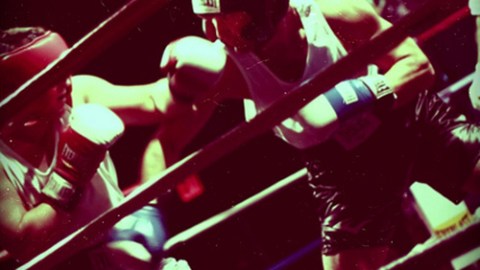Is Sportswriting a Dying Art?

“What Bert Sugar doesn’t know about baseball, nobody knows,” reads a quote from the great Yankees catcher Yogi Berra on the back of Sugar’s new book about the Baseball Hall of Fame. While Sugar admits he doesn’t know exactly what Berra means, it’s clear in his Big Think interview that what he doesn’t know about sports isn’t a heck of a lot.
Sugar, who has written over 50 books (mostly about baseball and boxing), is a cigar-chomping panama-hat-wearing sportswriter and commentator in the tradition of Damon Runyon. And he laments that he’s of a soon-to-be-extinct species. One of the big problems Sugar sees with the younger generation of sportswriters is that the demands of the Internet mean they don’t have the opportunity to think enough about what they’re writing. “They don’t have a discipline,” he says. “Once they state a subject, they can go on. There’s no space restraint. And they’re writing quickly, so there’s no time for thought and cerebral thinking on an article, they’re just banging away.”
Known as one of the foremost experts on professional boxing, Sugar also spoke about some of the more cerebral aspects of the “sweet science.” “Sometimes the man’s IQ ain’t too high, but his boxing IQ is. So, you watch them think. You know, yes, it’s instinctive, but they’ve had—they’ve learned. You have to understand, the word ‘experience’ really is ‘learning from mistakes.’ That’s experience, just learning from mistakes. And everyone has made a mistake whether they won or lost because of it, they put that into their, sort of mental computer, thou shalt not do it again.” He also spoke about some of the problems he sees in the sport today—namely that the best heavyweight boxers have gotten too heavy.
Sugar thinks the steroids scandal in baseball isn’t as big a deal as the press has made it out to be. He thinks that the advantages that performance-enhancing drugs give some players are offset by all of the other little ways that players get edges elsewhere. “Baseball has always dealt in edges,” says Sugar. “The Phillies used to raise their third base foul line—extra lime—so that Richie Ashburn’s bunts would stay there. The Cleveland Indians used to grow the grass higher at third base so Al Rosen, the third baseman wouldn’t break his nose or his fingers on every ground ball. It would slow it down. In the 1962 playoffs between the Dodgers and the Giants—by that time, Los Angeles Dodgers, San Francisco Giants—they watered the base paths so Maury Wills couldn’t get off to a fast start and steal bases. That’s legal, steroids aren’t. You know, all right. I don’t get that excited about it.”
Finally, he shares his pick for the best baseball player ever to play the game—a certain rotund pitcher-turned-outfielder whose curse kept the Red Sox without a World Series title for the better part of the 20th Century.





